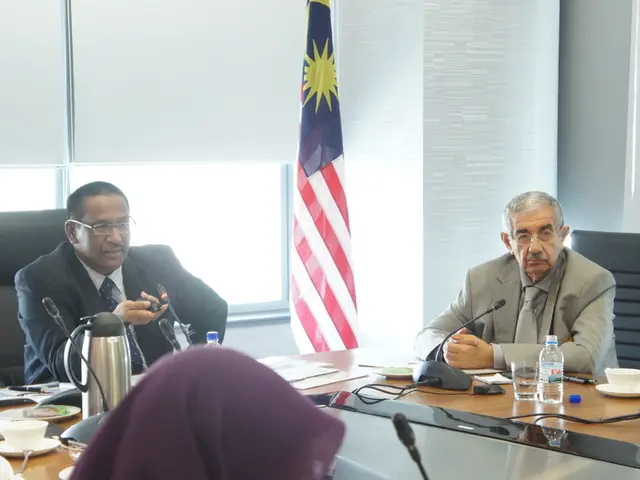European Union aims to strengthen relationships with India, disregarding complications arising from partnerships with Russia
The European Union (EU) and India are set to deepen their relationship, as both parties have expressed a shared vision for a stronger partnership. This new strategy, unveiled amid geopolitical turmoil and economic uncertainty, aims to bolster ties in various sectors, including sustainable fuels, green hydrogen, critical raw materials, artificial intelligence, advanced microchips, cybersecurity, crisis management, defence policy, legal migration, and even a potential EU-India summit in early 2026.
The EU sees immense potential in mutual trade with India and considers it a strategic partner. The diplomatic momentum between the two faces a crucial test in the negotiations for an EU-India free trade deal, which the two sides have committed to concluding by the end of the year. However, trade friction has been a hurdle, with protectionism from Brussels and climate/labour laws from New Delhi causing some tension.
The EU-India free trade deal is not the only significant step in the rising relationship between the two. The EU is also pursuing another coveted deliverable, the Security and Defence Partnership (SDP), which, if agreed, would be the third of its kind with an Asian nation. The EU is establishing security and defense partnerships with countries, including India, as part of a new strategy to enhance bilateral ties in areas like defense policy and crisis management.
The EU has expressed concerns about India's ties with Russia, specifically accusing India of providing a back door for sanctions circumvention. This issue, along with India's participation in the Zapad 2025 military exercises with Russia and Belarus, has been a point of contention. However, the EU recognises India's role as a moderate voice against anti-Western sentiment, which is a useful thing.
The EU's deepening cooperation with India is particularly beneficial given India's status as the world's most populous country and a major player in the Indo-Pacific region. This aligns with India's multi-alignment foreign policy, which can potentially offset its links to Moscow and Beijing for Brussels.
High Representative Kaja Kallas admitted that the Russia factor is "problematic" and a source of disagreements within the College of Commissioners. Yet, she refrained from issuing an ultimatum that would force India to pick a side. Instead, the EU is looking to broaden its cooperation with India, with the tariff fallout from Donald Trump's policies creating an opportunity for EU-India relations to improve.
As the EU-India free trade deal and the SDP are signed, the relationship between the two is set to reach new heights. This is especially important as US-India relations are strained, making the EU an increasingly important partner for India. The strategic partnership between the EU and India promises to bring about mutual benefits and strengthen global stability in these challenging times.
Read also:
- United States tariffs pose a threat to India, necessitating the recruitment of adept negotiators or strategists, similar to those who had influenced Trump's decisions.
- Weekly happenings in the German Federal Parliament (Bundestag)
- Southwest region's most popular posts, accompanied by an inquiry:
- Discussion between Putin and Trump in Alaska could potentially overshadow Ukraine's concerns






